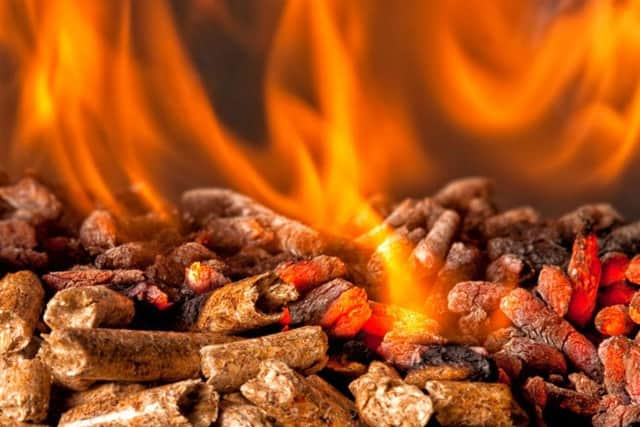Yorkshire biomass plants generate enough energy to power three million homes a year
The JPIMedia Data Unit has found that the burning of trees or plant matter - known as plant biomass - now accounts for more than a fifth (21%) of the UK’s renewable energy nationwide, second only to wind power.
The number of plant biomass power plants in the UK has more than trebled in four years, from 135 in 2014 to 429 in 2018. Between them, they now produce enough energy to power around 7.4 million homes.
Advertisement
Hide AdAdvertisement
Hide AdYorkshire accounts for more than a third of this, generating more than nine million megawatt hours of energy which is enough to power nearly three million homes. In total two thirds of renewable energy generated in Yorkshire and the Humber came from plant biomass in 2018.


Unlike other forms of green energy, biomass plants produce greenhouse gases. Across the country, the rise in biomass means its total greenhouse gas emissions have nearly reached the amount produced by coal.
The industry says wood is sourced from renewable forests, with new trees being planted which store carbon and help to offset the emissions produced.
But with the environment proving a key policy battleground in this year’s General Election, campaigners are calling for the practice to come under more scrutiny.
Advertisement
Hide AdAdvertisement
Hide AdKatja Garson, forest and climate campaigner at European campaign group Fern, said: “It is very concerning that in the global push to reduce emissions, more is not being said about the climate impacts of harvesting and burning wood.”
Of the five local authority areas that generated the most energy from biomass in 2018, two are in Yorkshire, namely Selby and Sheffield. Selby, which is home to Drax power station, produced enough energy from biomass to power 2.7m homes, while enough was produced in Sheffield to power 102,000 homes.
Each biomass site has a different source of plant biomass. Some sites source their fuel locally whereas a few big operators use wood pellets sourced from abroad.
Bioenergy is renewable energy generated through burning organic material. Plant biomass sites use fuel such as plants and wood while animal biomass sites use fuel such as animal waste.
Advertisement
Hide AdAdvertisement
Hide AdDrax in Selby last year switched on its fourth biomass generating unit, meaning it is on course to be off coal before the government’s 2025 deadline. It plans to supply more of its own biomass, to help the UK reach its targets for reducing carbon emissions.
Further south, sandwiched between the M1 motorway and a nature reserve, on the site of the demolished Tinsley cooling towers, is the Blackburn Meadows biomass power station.
Run by energy giant E.ON, the plant has been operating for the past five years and generates enough energy to power 40,000 homes in South Yorkshire.
Despite this, Sheffield City Councillor Douglas Johson, of the Green Party, is concerned the site’s carbon dioxide emissions will prevent the city from reaching its net-zero carbon goals.
Advertisement
Hide AdAdvertisement
Hide Ad“In principle, using wood to generate electricity is acceptable, provided it is genuinely waste material. However, where wood has to be produced or wasted unnecessarily just to keep a biomass plant going, that is more of a problem,” Cllr Johnson said.
The council has an ambition for Sheffield to become a net-zero carbon city by 2030 but Cllr Johnson said the presence of the plant would make this more difficult.
Data from the National Atmospheric Emissions Inventory shows that Blackburn Meadows is one of the biggest emitters of CO2 in the local authority.
A spokesperson for E.ON said Blackburn Meadows recycles locally-sourced waste wood and said the waste “would have otherwise have gone to landfill”.
Advertisement
Hide AdAdvertisement
Hide AdThe spokesperson added: “The combined heat and power plant is a more efficient process, generating enough power for the equivalent of 40,000 homes and at the same time capturing the waste heat produced through that process for a district heating scheme providing heat to customers including Sheffield Forgemasters, the Sheffield Arena and Ice Sheffield.”
